Health Care and Dental Care
Health Care

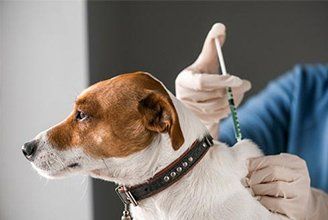
Vaccination

Vaccination has revolutionised control of infectious disease in our pets. It is essential that all pets are adequately vaccinated to help protect the pet population as a whole.
Responsible pet care requires puppies and kittens to be given their initial course of vaccinations, but this cannot protect them for the rest of their lives. Adult dogs and cats require regular vaccination to maintain immunity against disease.
We routinely vaccinate against the following infectious diseases in cats:
- Feline Enteritis (also known as Feline Panleukopenia)
- Feline Calicivirus and Herpes Virus (commonly referred to as “Cat Flu”)
- Feline Immunodeficiency Virus (FIV) (commonly referred to as Feline AIDS)
We routinely vaccinate against the following infectious diseases in dogs:
- Canine Parvovirus
- Canine Distemper
- Canine Hepatitis
- Canine Cough (Parainfluenza & Bordetella)
Desexing

Desexing or neutering your pet is a surgical procedure that prevents them from being able to reproduce.
In male pets it is commonly referred to as “castration”, and in female pets as “speying”. This is the most frequent surgery performed by our vets, and generally your pet is home the same evening after surgery. The most common age to desex your pet is between 4 and 6 months, however they are never too old to be desexed.
There are many benefits to desexing your pet before 6 months. They include:
Preventing unwanted litters, which can be very costly, and may add to the already overwhelming number of stray animals that are put down each year.
Prevention of testicular cancer and prostate disease in males, and it can help prevent pyometra (infection of the uterus) and mammary tumours (breast cancer) in females
Stopping the “heat” cycle in females
Decreasing aggression towards humans and other animals, especially in males
Being less prone to wander, especially in males
Living a longer and healthier life
Reduction of council registration fees
For further information on desexing your pet please contact one of our team at the clinic.

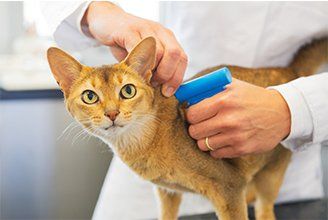
Microchipping
Dental Care

Just like humans, our pets are vulnerable to gum disease and problems with their teeth.
Alarmingly, 80% of dogs and 70% of cats suffer from some form of dental disease by the age of three. When there is a build-up of bacteria, food particles and saliva on the teeth plaque is formed. Plaque sticks to the tooth surface above and below the gum line and if not removed will calcify into tartar (also known as calculus). This appears as a yellow-brown material on the teeth. Over time the bacterial infection in tartar causes irreversible changes to occur.
These include the destruction of supportive tissues and bone, resulting in red gums, bad breath and loosening of teeth. This same bacterial infection is also a source of infection for the rest of the body (such as the kidney, liver and heart) and can make your pet seriously ill. Ultimately, dental disease results in many pets unnecessarily suffering tooth loss, gum infection and pain. It also has the potential to shorten your pet’s lifespan.
What if my pet has dental disease?
Firstly, you should have your pet's teeth examined by one of our veterinarians on a regular basis and if necessary, follow up with a professional dental clean. Your pet needs to be anaesthetised to carry out a thorough dental examination, and to clean all teeth without distressing them. Once anaesthetised, a complete dental examination is carried out. This process involves charting all present teeth and evaluating their condition, including the degree of tartar, gingivitis (gum inflammation) and any pockets in the gums around the teeth.
Our veterinarians will then remove the tartar above and below the gumline using a special ultrasonic scaler, just like a dentist uses for our teeth. The teeth are then polished using a dental polisher and specialised fine-grade paste. If the dental disease is not severe, the procedure will end here. However, if certain teeth are so severely affected they cannot be saved, extractions will be necessary. In some cases, gum surgery is required to close the holes left behind when a tooth is extracted, and dissolvable stitches are used for this procedure.
Once all dental work is completed, your pet may be given an antibiotic and an anti-inflammatory injection, the anaesthetic gas is turned off, and your pet is allowed to wake up. Pets are generally able to go home on the same day.
Following a professional dental clean, a plan needs to be implemented to minimise build up of tartar again, and will depend on the severity of your pet’s dental disease. This may involve regular tooth brushing, feeding raw meaty bones and/or a special diet. It is recommended that all pets be examined no longer than 6 months after dental cleaning to determine the effectiveness of your dental care routine.
How can I minimise ongoing dental disease?
Long-term control and prevention of dental disease requires regular home care. The best way to begin this is to acclimatise your pet from a young age. Dental home care may include:
Brushing teeth daily – just like us! This is the best form of dental hygiene. Pet toothbrushes and toothpaste are now available. Please do not use human toothpaste formulas as they are not designed to be swallowed and may be toxic to your pet.
Feed pets raw meaty bones or special dental diets. This can help reduce the accumulation of tartar.
Use dental toys, enzymatic chews, or teeth cleaning biscuits, all of which may help keep the teeth clean.
Regular and frequent attention to your pet's teeth may avoid the need for a professional dental clean under anaesthetic, and will also improve your pet's overall health.
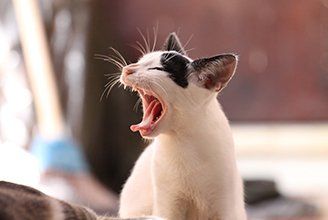
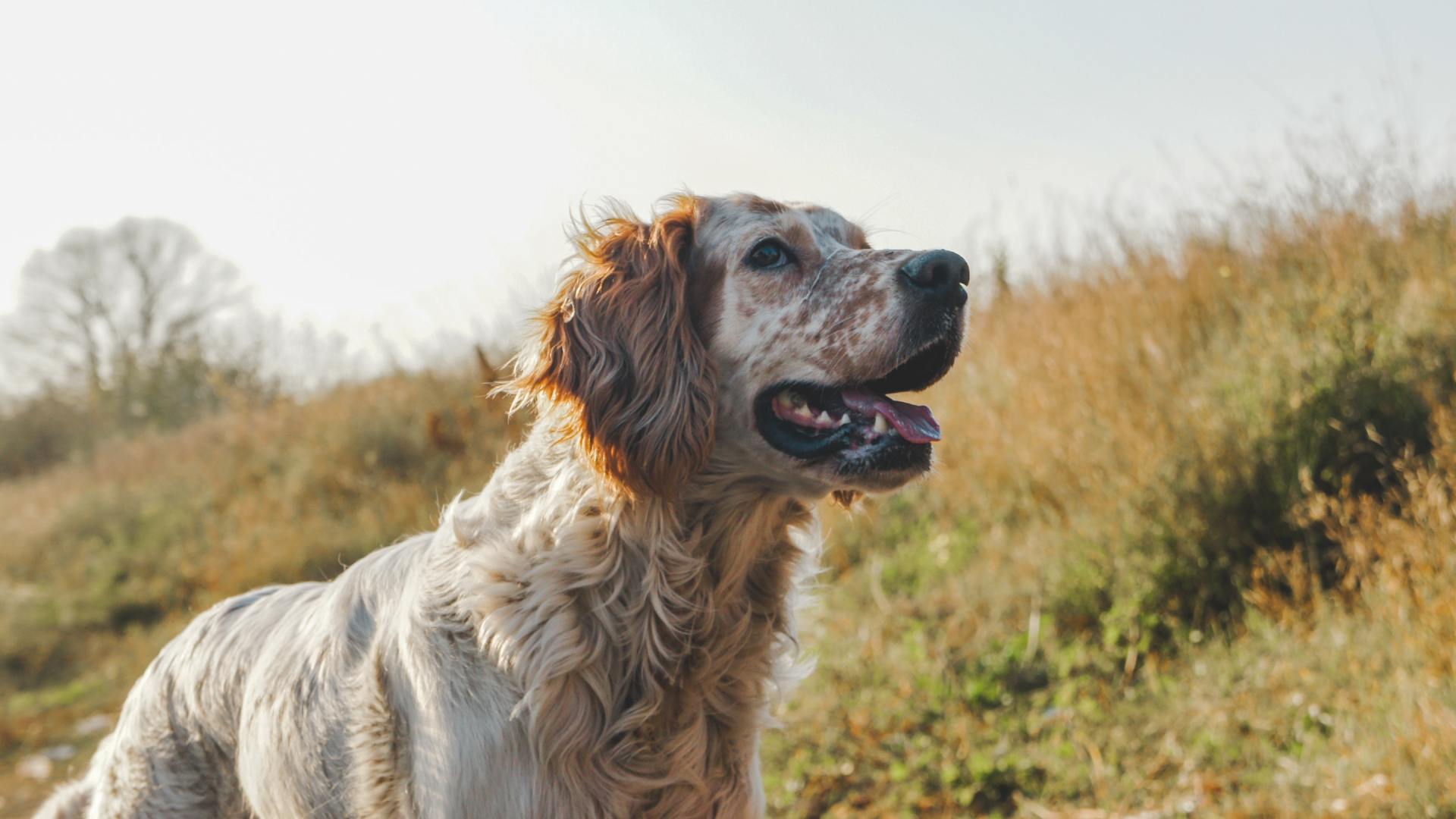
Flea Control

Fleas are most often seen during the warmer months but as we keep our homes nice and warm throughout winter, we see fleas all year round. Only a small part of the adult flea population actually lives on your pet. The fleas’ eggs and larvae live in the environment and can survive for up to a year, so it is important to not only treat your animal directly for fleas but also decontaminate the environment as well. Wash your pet’s bedding using the hottest cycle and regularly vacuum/clean carpets. We do not recommend flea collars or flea shampoos alone as they fail to address the environmental flea infestation.
Some signs that your pet may have fleas include:
Scratching, biting and hair loss, especially at the base of the tail and rump
You may see fleas (especially over the rump and in the groin region)
It can be difficult to find the fleas, but is relatively easy to check for flea dirt. Simply moisten a cotton ball, part your pet’s fur and place the cotton ball on the skin over the rump. If the cotton ball takes on black specs surrounded by a reddish area, this may be flea dirt and can indicate that your pet has fleas.
When treating fleas it is important to choose the most effective products which will kill adult fleas as well as prevent development of eggs and larvae. There are many effective, convenient products which do not require bathing or smelly chemicals! We are happy to advise you on the best product for your situation.
Intestinal Worms
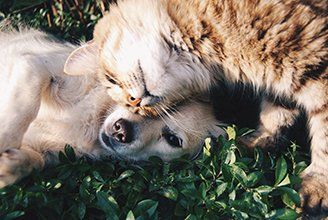

Heartworm
Nutrition

Along with regular exercise and veterinary care, careful nutrition is the best way you can contribute to your pet's prolonged good health.
There are many and varied nutritional needs depending upon an animal’s age, breed and medical conditions. We stock the Royal Canin Vet Care range for healthy pets, this range is exclusive to veterinarians and it is Royal Canin’s premium range.
In addition we have a range of diets from Hills and Royal Canin which are specific for medical conditions such as renal failure, obesity or liver disease.
Please give us a call to discuss your pet’s nutritional needs. We will tailor a diet specifically for your pet that will give them the optimum quality and length of life.
Remember, you are what you eat, and so is your pet!

Contact Us
- Mon - Fri
- -
- Saturday
- Appointment only
- Sunday
- Closed



